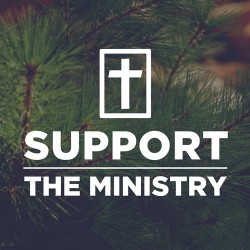
O-B-E-D-I-E-N-C-E. When I was a kid we would spell out the word in a song we would sing at church. The song said that obedience was the very best way to show that we believe. I recently heard an older pastor share about his experience with a church plant he was heading up in southern California. As he was providing a ride for some older ladies in the church and sharing how he hoped that the church would succeed and grow, the lady in the passenger seat reached over, grabbed his arm and said, “Young man, obedience is the height of success.”
Obedience has often been a theme of much of my speaking, particularly when I utilize the steer, horses, or dog. It is a quality that they illustrate well and one that I need to preach to myself regularly. The question my animals have to answer each day is the same one I must; “Who’s in charge?” How they answer that question reveals the condition of our relationship.
Genesis 12 is the account of Abraham and his willingness to follow God’s leading to leave Ur and travel to an unknown land. Abraham’s response was to go, though he didn’t know, and trust that God would show. That is faith, evidenced by his action of obedience. In Genesis 22 we find Abraham walking in obedience to God’s directive to offer up his son Isaac as a sacrifice to Him. Isaac was supposed to be the fulfillment of God’s promise to make Abraham’s descendants innumerable. This command made no sense in earthly terms, but Abraham acted in obedience and the very next morning he began the four day journey to Mount Moriah with his son. We know how the story ends; God, upon seeing the obedience of Abraham, supplies a ram as a substitute for Isaac. But the point is, Abraham still went despite not knowing of the substitute. He believed God for His promise and yet the angel called his name twice to keep him from killing the boy. Abraham’s obedience stemmed from his relationship with God. He was willing to do what God had asked of him even if it made no sense in man’s terms.
I’ve thought a lot about how my obedience to God is born out of my intimacy with God. I’ve also considered what things in my life may hinder that intimacy. One of the things that comes to mind on the unfavorable side is idols. I used to think idols were just an Old Testament issue, but John concludes the book of I John by addressing that very thing. After 105 verses focused on the fundamentals of Christianity and relationship with Jesus Christ he says, “Little children, keep yourselves from idols.” Idols can be anything or anyone we look to for what only God can supply. Part of the challenge is that “anything” can be an idol. We like to think of common things like money, power, etc. but it can be as subtle as comfort or the need for control. God is serious about those things that inhibit my intimacy with Him, but am I? I must aggressively deal with the idols of my heart as though it were a crisis, and a crisis is something that requires my full attention.
The book of Acts tells us that David was a man after God’s own heart because “he would do the will of God”. Abraham was called a “friend of God” because of his faith and obedience. To live a life that is defined by confidently walking in obedience with God, we must cry out to Him to reveal these idols in our hearts. If we lose sight of protecting the intimacy of this relationship, then we lose sight of the One whom we are to walk in grateful obedience to.



I remember you talking about this when I was working there! Yes, obedience is the best trait to have, especially when trying to walk with God. Oddly enough it is also one of the hardest traits to have and put into effect properly. Once it has become a habit, though, life will be far more enjoyable and rewarding. One thing that I would ask is prayer for wisdom on what to do in the near future as I am trying to see what God would have for me to do.